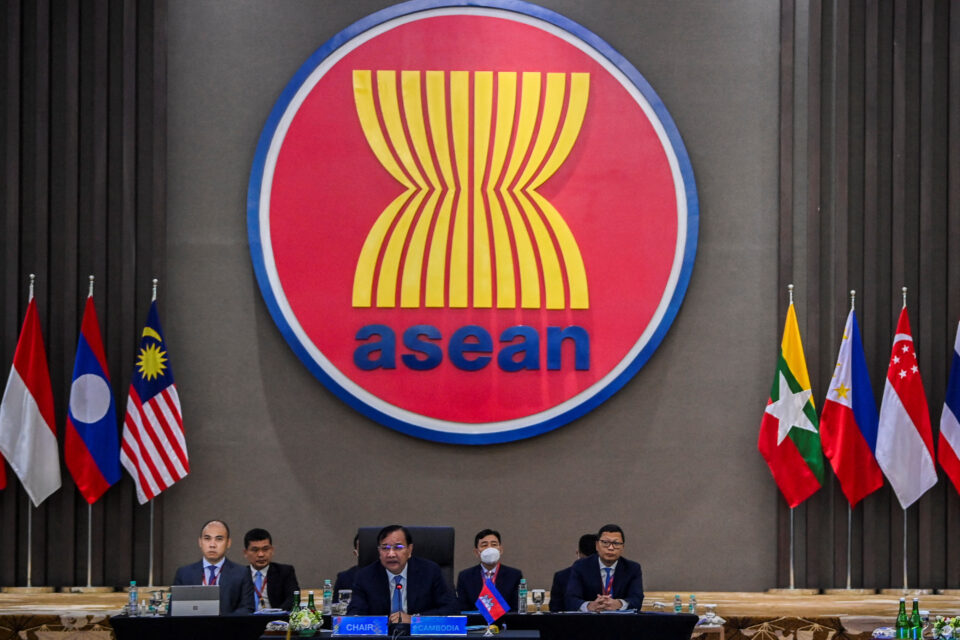DAVOS, Jan 19 — As the fastest growing trade bloc in the world, Asean needs both public and private sector involvement to make its supply chain seamless and take full advantage of its potential.
Minister of International Trade and Industry Tengku Datuk Seri Zafrul Aziz said intra-Asean trade is still a major component of trade for all countries within Asean.
Intra-Asean trade has continuously accounted for the largest share of the bloc’s total trade. In 2020, intra-Asean accounted for 21.2 per cent of total merchandise trade in the region.
“Of course, we are still trying to ride out of the pandemic, especially the supply chain (issues) and we need to ensure that it is not just government initiatives.
“But it should be a public and private partnership initiative towards resolving the supply chain issues across the region,” he told Bernama on the sidelines of the 2023 World Economic Forum (WEF) Annual Meeting here today.
The minister said that not only the ports, but others in the supply chain such as the freight and truck services, need to work towards resolving it.
“Ports in Malaysia, Singapore, and Indonesia, the freight service and trucks must resolve issues more efficiently and productively. We know what the challenges are, the manpower challenges, system, standard, energy as well as sustainability,” he added.
This is vital to take full advantage of opportunities, especially with China opening up.
“I think for Asean as a whole there are a lot of opportunities. We are the fastest-growing bloc in the world. The population is 660 million.
“The future is good if we can improve on what we already have. Asean as a bloc has comrade support. We can (communicate) on various platforms and the quicker we realise the opportunities the better,” Tengku Zafrul elaborated.
Despite a rather sombre global economic outlook for 2023, there has been strong optimism — particularly among the Asean countries — on display throughout the WEF.
Indonesia’s Coordinating Minister for Maritime Affairs and Investment Luhut B. Pandjaitan told the forum that Asean is confident of navigating the global headwinds and staying on the growth path.
“Indonesia is quite confident that if it can play its role, Asean can become the centre of growth in the region. Evidently, Thailand, Vietnam, the Philippines and Indonesia are doing pretty good at this time,” he said at a session entitled The Pulling Power of Asean on Wednesday (January 18).
It was reported that Asean’s total gross domestic product (GDP) in 2021 hit US$3.3 trillion (RM14.2 trillion), making up 3.5 per cent of global GDP, according to bloc figures.
Indonesia, the chair of Asean in 2023, is the bloc’s largest economy by far, it said.
According to the Organisation for Economic Co-operation and Development (OECD) for last year and 2023, Asean’s real GDP growth is forecast to be 5.2 per cent.
“We only compete in trade. We do not have any differences in politics or intervene with each other,” the Deputy Prime Minister and Minister of Public Health of Thailand Anutin Charnvirakul told the same forum.
“If you look geographically at the formation of Asean countries, we are the only region that connects the West with the East. Nobody could pierce through the Eastern Hemisphere without passing through the Asean region,” he said.
‘Voices of emerging markets’
Tengku Zafrul said the WEF has given an opportunity for countries like Malaysia, Indonesia, and Thailand to give the perspective of emerging nations on issues such as palm oil and environmental, social and governance (ESG).
“We need to ensure that we get the points across, because globally every country is at a different stage of growth, different stage of development.
“So, you cannot apply the same standard, same policies to achieve what everyone wants to achieve,” he pointed out.
“For example, if we want to achieve something that the developed countries have achieved, we need a time frame that is fair to all. The road map cannot be the same, some might need to take a slightly longer time and different tools to achieve(their goals).
“So, it is important that the voices of emerging markets be united and most importantly, be heard,” Tengku Zafrul said.
— Bernama





